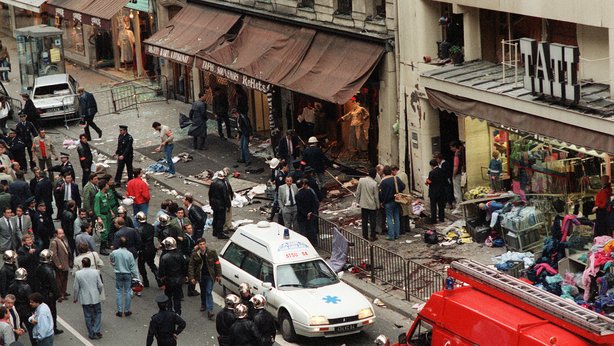
The terrorist attack in Paris was too familiar to many of us. Scenes of panic as people try to figure out what is happening, not knowing if they are safe or if they will be the next target. Reports of well trained gunmen, casually walking through crowded buildings and killing innocents calmly, smiling even as they commit atrocities most of us could not even imagine in our sickest nightmares. Heartfelt grief and support poured out from around the world as we watched helplessly while another tragedy unfolded before our eyes on our TV screens. These sorts of scenes have become too common, and now it does not even take a day before questions and accusations are thrown about.
Almost before the first report of a Syrian passport was broadcast, already there were people claiming the attack was a ‘false flag’ intended to stop the settlement of refugees. I am not going to dignify such idiocy with a proper debunking, but will only point out that no country, European or anywhere else, needs to murder its own citizens in order to refuse refugees. Actually, it serves the agenda of Daesh much more than it does the West if refugees are refused, which should be enough in itself. Now, this part of Daesh’s plan seems to be coming true. Nations are re-thinking to let refugees in, essentially relegating them to a fate of choosing between joining Daesh or dying. It is the ancient strategy of conversion by the sword.
We have taken great pleasure in pointing out the cold hypocrisy of abandoning war refugees, even while we resent and try to get rid of the millions from Afghanistan that have taken refuge here. But there is a bigger lesson that I think we should not miss.
Western countries want to refuse refugees because they are afraid that some terrorists will sneak in with them and carry out new attacks. The idea is that they will be safe if they seal their borders. But this assumes that the terrorists are someone ‘other’ than European. However except for possibly one person, the attackers appear to be Europeans. This is the important point that is being missed: There are thousands of Europeans joining Daesh. Why would they need to smuggle in refugees?
This is an important warning for Europe, but it is also an important lesson for Pakistan. After every terrorist attack here, we point to someone outside the country. Usually it is India, and even GHQ has taken the unprecedented action of blaming India for terrorism.
A recent survey found that most Pakistanis believe that foreign powers are behind terrorism in the country.
According to the survey, about 55 percent of respondents believe India is involved behind terrorism in Pakistan. Another 29 percent blame the US for sponsoring terrorism in Pakistan. Overall, 79 percent of the respondents see a foreign hand behind terrorism in Pakistan.
This belief is firmly held even though the people caught for committing the terrorist acts are never Indians or Americans but always Pakistanis. Salmaan Taseer killer? Pakistani. Sabeen Mahmud killer? Pakistani. PAF Badaber attackers? Pakistani. APS Peshawar attackers? Pakistani. Wagah bomber? Pakistani. Jacobabad attackers? Pakistani. The list goes on and on and on.
When Europeans place the blame of terrorism on refugees, they are missing the point that the threat of extremism is already spreading within their own societies. Daesh does not have to invade with people because they have already invaded with ideology. They have converted Europeans to their madness and now those Europeans are turning on their own people. Just like the extremist ideology has spread here and it is our own people who are turning on us.
In order to defeat terrorism, we have to stop looking to blame someone else. From Paris to Peshawar, it is the extremist mindset and jihadi ideology that is at the root of these atrocities. We have experienced this for decades and suffered the most from it’s poison. We should be able to warn Europe and correct their mistaken strategy of blaming refugees and an ‘other’ for threatening terrorist attacks. But before we can save anyone else, we will have to save ourselves by admitting that it is the same problem we are facing also.
![]()





